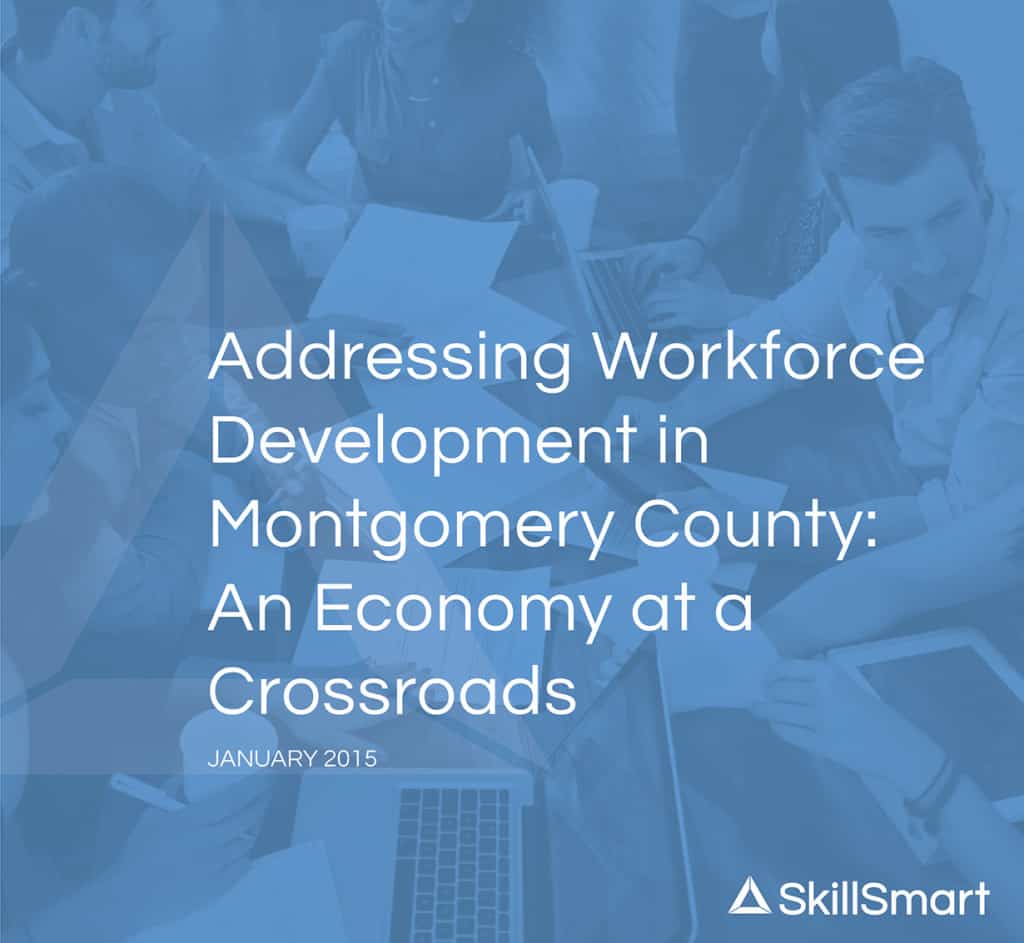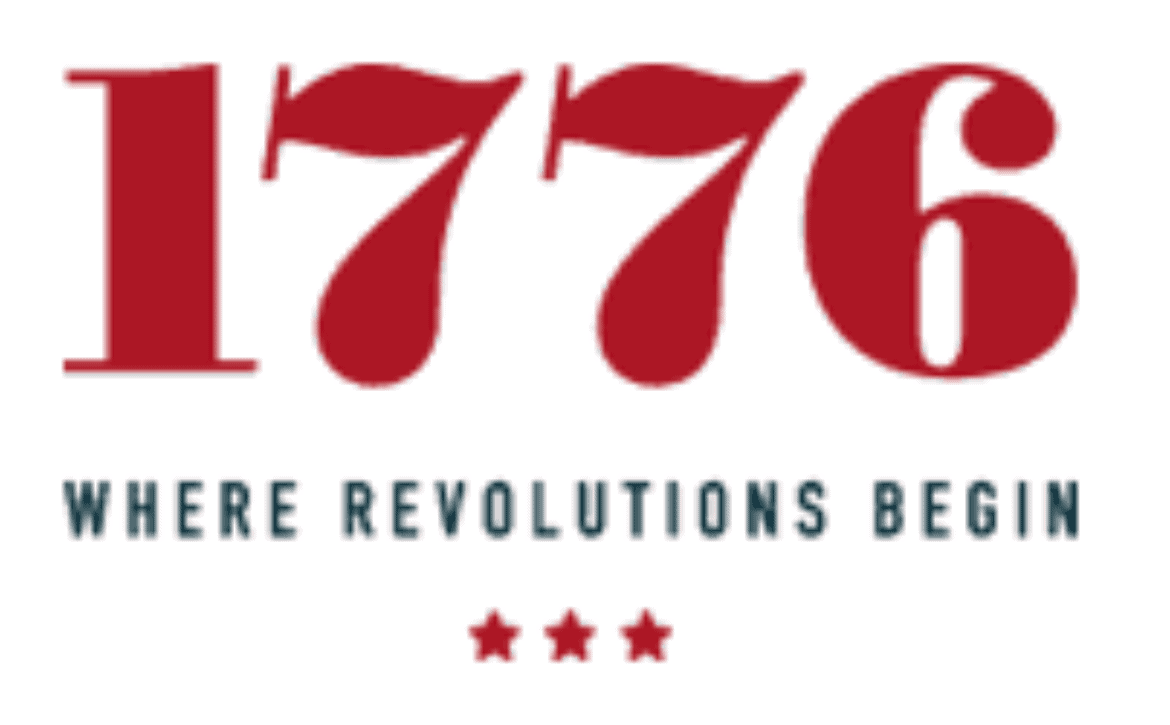SkillSmart Partner Spotlight featuring Montgomery Business Development Corporation and Rx for Employability

With our corporate office located in Montgomery County, MD, we’ve had the privilege of working with local employers to gain a deeper understanding of their workforce needs and challenges through our partnership with the Montgomery Business Development Corporation (MBDC).
MBDC is an apolitical organization, established by the Montgomery County Council, that provides a business-friendly perspective regarding economic development issues ranging from strategic planning, to retaining and attracting business, and to employer and workforce advocacy. MBDC creates change in the positive economic model of the County by increasing the ability to compete, encouraging culture and innovation, minimizing the cost of doing business, and fostering business growth while improving “quality of place.”
As part of our Partner Spotlight Series, we talked with Ellie Giles, Director of Operations for MBDC to get her take on how the County’s Rx for Employability Program is creating positive change for local and state employers.

SkillSmart (SS): Can you explain the Rx for Employability Program, how it came to be and what it hopes to achieve?
Ellie Giles (EG): The Rx for Employability initiative is a healthcare sector partnership as part ofEARN Maryland, a new state-funded competitive workforce and economic development grant initiative. It’s managed by the leadership of the Maryland Department of Labor, Licensing and Regulation (DLLR). The goal of Rx for Employability is to create a sustainable industry-led career pathway model that addresses current and future workforce needs. We’d like Rx for Employability to set an example for other regions throughout the country and can be easily replicated to create a more qualified workforce at large.
(SS): What are the key components of the program?
(EG): There are several. We’ve developed the program to encompass four key components; Rx for Employability is:
- Industry Informed: comprised of industry focus groups, interviews and qualitative data that define distinct career pathways.
- Population Specific: the priority population of the program includes unemployed or underemployed individuals or incumbent workers in need of updated training in Montgomery County.
- Skills-Oriented: the program provides technical and employability skill training and support.
- Data Driven: data of individuals by their outcomes is used to measure success and tailor the program as needed.
Rx for Employability has created targeted career pathways to provide a better educated and more skilled workforce in fast-growing positions. We strive to set our participants up for success in three key positions:
- Pharmacy Technicians: participants can learn the right skills that can lead to a career path in pharmacy.
- Sterile Equipment Processing Technicians: participants can learn the right skills that can lead to a career path in infection disease control in health care facilities.
- Medical Coders: Rx for Employability provides continual bridge training from Medical Coders from ICD 9 to meet the requirements of ICD 10 as mandated by Affordable Care Act (10/1/15) so participants can continue along a career pathway in medical records management.
(SS): How does Rx for Employability receive funding?
(EG): Our funding comes in two forms. Maryland State Department of Labor and Licenses (DLLR) awarded MBDC with a $211,000 EARN grant to be paid over a 2 year period (fiscal years 2015 and 2016). We currently have an application pending for additional funding after 2016. Montgomery County Government provided $192,500 of funding for the Rx for Employability through the Department of Economic Development for fiscal year 2015; continued funding is pending.
(SS): How have Industry employers benefited?
(EG): The program has helped employers clearly establish their talent needs and identify internal career pathways not just for employers but for the industry as well. It’s encouraged the development of industry-specific career skills to ensure reliable employability today and into the future, and has provided recommended strategies for HR structures to improve job application processes and raise personnel awareness for entry level (establishing a community/industry connection).
(SS): How have community/training agencies benefited?
(EG): Through a number of ways, but most importantly Rx for Employability has enhanced support services of community and training agencies. The program has coordinated collaboration between 22 non-profit agencies for candidate outreach and participant support services, helping to identify strengths/challenges within the agencies as they interface with industry. It’s also unified a work-ready pipeline and skills development; we currently have a pending grant (for $100,000) to develop appropriate standards for consistent work-ready programs.
(SS): How have your participants benefited?
(EG): We’ve received a number of metrics that mark the success for participants. A few examples include:
- Increased employment pipeline opportunities for participants through our “Earn while you Learn” process that created unique jobs providing both employment with dignity and apprenticeship training.
- Individualized employability support to 80 potential Pharmacy Technician candidates through a partnership with CVS Health (interviewing, application completion, dressing, communication etc.).
- Successful recruitment for Sterile Processing Technician training for 10 participants through a partnership with Adventist HealthCare.
- Successful outreach for our Medical Coder-Bridge program with 290 participants through a partnership with the Montgomery County Medical Society.
In our first year, we’ve had nearly 400 participants interact with the Rx for Employment Program:
- Pharmacy Technician: 80
- Sterile Processing: 26 (Includes training participants and backfill employees)
- Coder Bridge: 290
- Total: 396
(SS): What do you feel is the greatest challenge facing the Rx for Employability program?
(EG): Coordinating all the wonderful resources in Montgomery County for a strong collaborative effort. It’s our greatest challenge, but it’s also our greatest reward.
(SS): Do you find that skills training is an issue for the employers with which you interact?
(EG): MBDC works to engage the business community through business retention and business expansion activities. Strong talent and talent development opportunities are frequently mentioned as a reason for locating their business in Montgomery County. The Rx for Employability program has been enthusiastically embraced by the Healthcare industry and we have already expanded this model to include mid-level occupations with a new Nursing-bridge program providing specialty training.
(SS): What advice do you have for other jurisdictions looking to implement a program similar to Rx for Employability?
(EG): Listen to the industry to determine the skills needed for entry into a sector. Working with the industry sectors has not only allowed us to provide comprehensive skills training (technical and work-ready skills), but also provide the training to be progressive by addressing skills for future needs. We’ve been able create a sustainable career pathway.
(SS): What are the biggest challenges to ensuring students are career-ready?
(EG): The Rx for Employment program recruits from the wonderful non-profit community agencies in the County. Currently, we are partnering with 26 different programs to recruit candidates. The work-ready training provided by each non-profit program varies, and we’ve learned that a consistent work-readiness program across all programs is needed. To address this issue, we have applied for and have been granted additional State funding to pilot a work-readiness training program (based on input from employers) that we hope can be disseminated to all agencies and organizations within the County. The program will be competency-based with practical hands-on learning opportunities within a variety of work places.
(SS): How do you think SkillSmart can play a role in advancing the skills of our workforce to meet the demands of employers?
(EG): Making connections between current and needed skills and career opportunities is valuable support for our unemployed and underemployed. According to The Washington Business Journal, the March 2015 unemployment rate in the Washington area is 4.7%. The current opportunities require specialized skills. The SkillSmart technology is a fantastic tool to address the current employment needs by providing graphic progress reports and connections to the right skill training programs.
Learn more about Rx for Employability and how Montgomery County is working to train its regional workforce with the right skills employers need.
Learn More







 Center Maryland
Center Maryland





 We caught up with Jason Green, VP of Business Development and cofounder of SkillSmart, to talk about his views on the current job market and how he stepped into the startup world after working in the White House for four years.
We caught up with Jason Green, VP of Business Development and cofounder of SkillSmart, to talk about his views on the current job market and how he stepped into the startup world after working in the White House for four years.